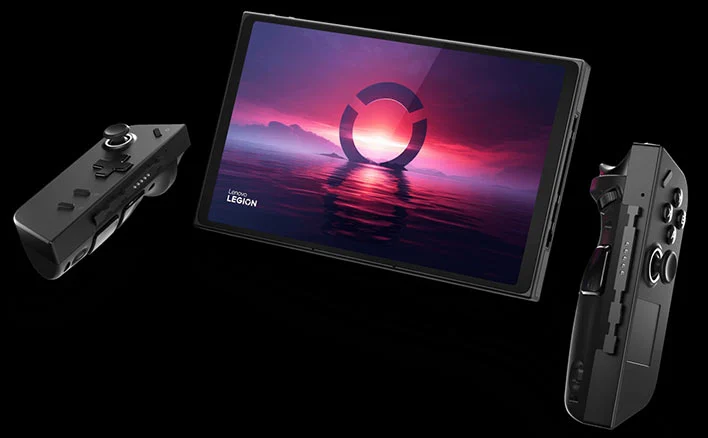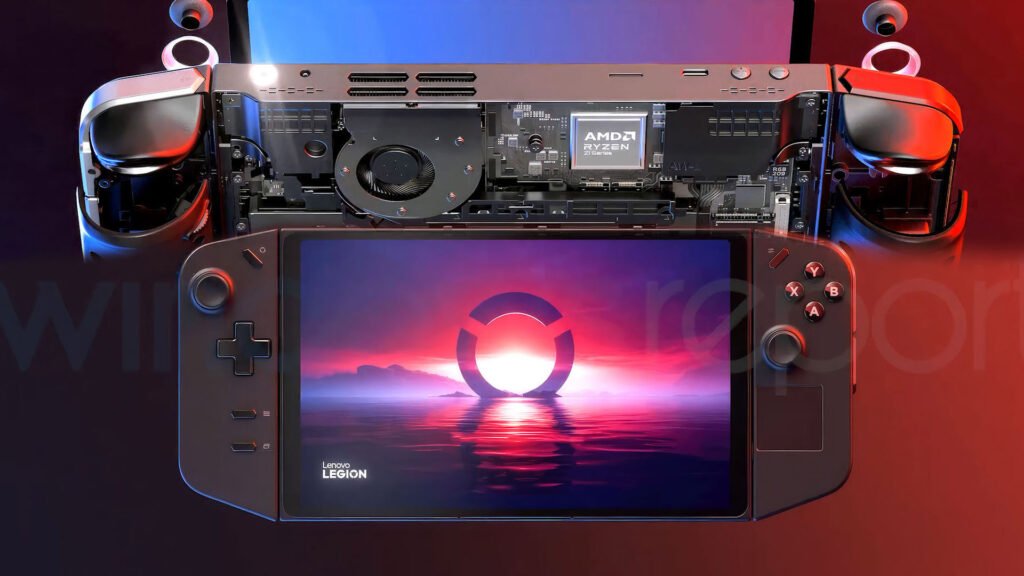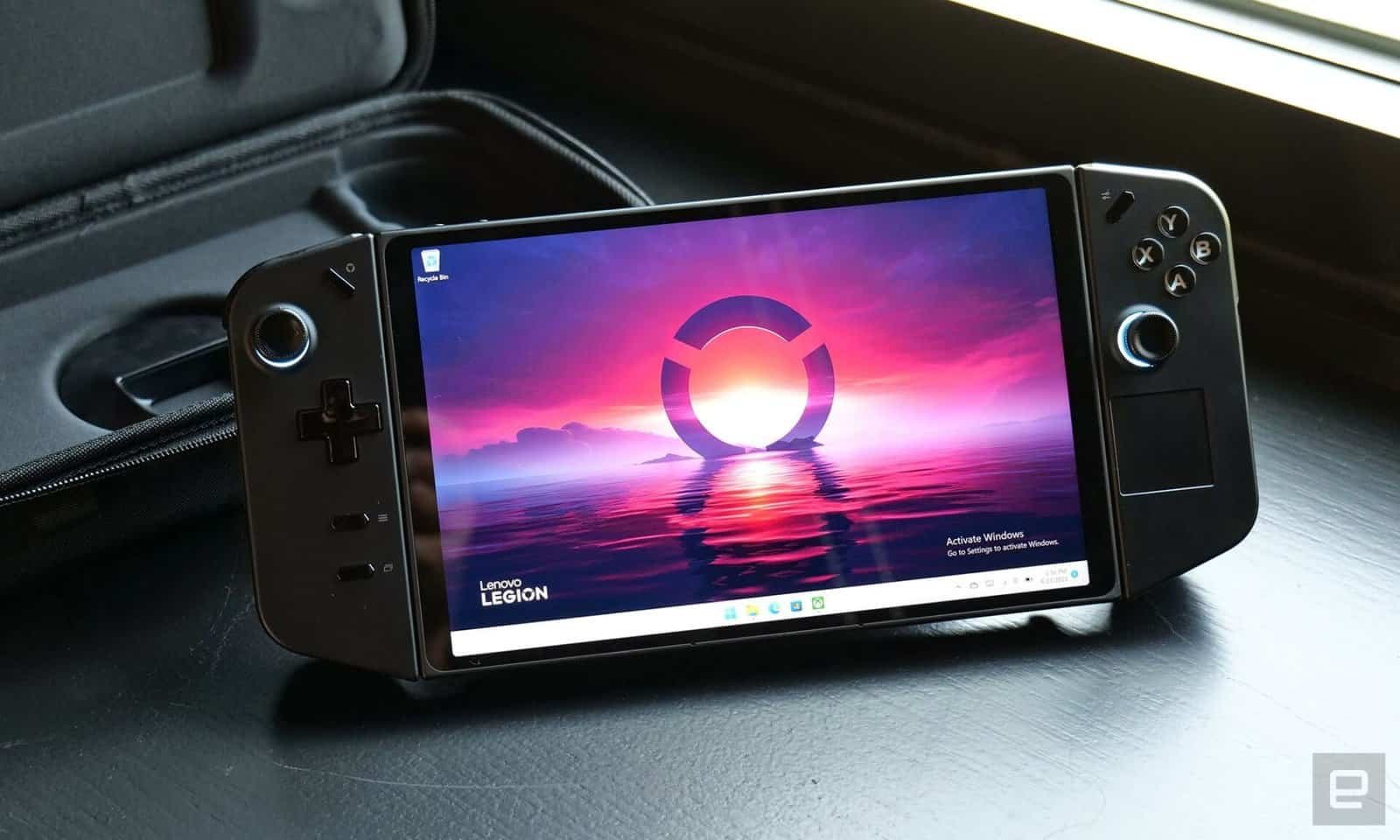Detachable controllers are situated on the Lenovo Legion Go’s opposite display ends. The rear, meanwhile, has a built-in kickstand. There are several noteworthy elements of the controls. They have hall effect sticks, which reduce dead zones and the famed joystick drift problem while enhancing accuracy. Additionally, the right controller’s bottom has an optical sensor that enables it to function as a mouse for greater precision in first-person shooter games.


The controllers on the Lenovo Legion Go are completely programmable, and the Legion Space software even lets you alter the RGB lighting on the joysticks.
Even the key mapping and setting options are customizable for each game. The portable includes a big 8.8-inch PureSight display on the front with a 2,560 x 1,600 resolution, 16:10 aspect ratio, 500 nits of peak brightness, and a 97.3 percent DCI-P3 color gamut. Compared to the 60Hz 7-inch LCD screen on the Steam Deck, which only offers a 1,600 x 800 resolution, this resolution is substantially higher.
The ASUS ROG Ally is powered by the AMD Ryzen Z1 and Ryzen Z1 Extreme, which are also found within Lenovo’s first gaming handheld. These chipsets come with 256GB, 512GB, or 1TB of PCIe 4.0 NVMe M.2 storage and 16GB of LPDDR5X RAM. It uses Windows 11, making it similar to the ROG Ally in that it functions as a portable handheld gaming PC.
The portable is powered by a 49.2Wh battery pack, which is 19% bigger than both the Steam Deck and ASUS ROG Ally and is comparable to the typical gaming laptop battery capacity. Lenovo states that the device’s 65W rapid charging capabilities allow it to charge to 70% in just 30 minutes. Notably, a 900mAh battery pack is also located inside each controller.
| Spec | Lenovo Legion Go | Asus ROG Ally |
| Display | 8.8-inch 2560 x 1600-pixel IPS, 144Hz refresh rate | 7-inch 1920 x 1080-pixel IPS, 120Hz refresh rate |
| Processor | AMD Ryzen Z1 Extreme | AMD Ryzen Z1 Extreme |
| RAM | 16GB LPDDR5X | 16GB LPDDR5 |
| Storage | Up to 1TB | 512GB |
| Battery Capacity | 49.2 WHr | 40WHr |
The maximum TGP for the Lenovo Legion Go is 25W. Utilizing Custom Mode in the Legion Space software will enable this. However, Quiet Mode greatly reduces the TGP and even caps the device’s fan noise at below 25 decibels. A 3.5mm headphone socket, a microSD card slot for memory expansion, and two USB-Type C connections are further noteworthy features.


The gaming portable from the Chinese tech giant starts at 699 US Dollars. The cost of any of the additional storage possibilities, however, has not been disclosed by the manufacturer. However, we may anticipate that the Ryzen Z1 Extreme will cost more. In late October 2023, it will be sold at big-box stores and on the official Lenovo website.
Also read:
Best games of 2023 so far: PS5, Ps4, PC and Xbox list


